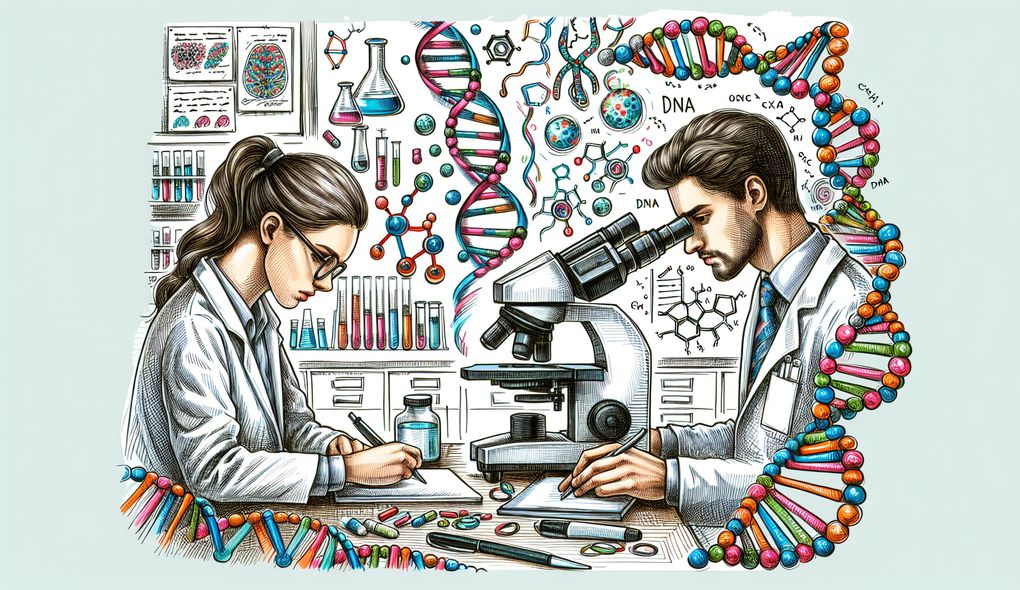How do you communicate complex genetic information to patients in an understandable way?
INTERMEDIATE LEVEL

Sample answer to the question:
When communicating complex genetic information to patients, I make sure to use simple language that they can understand. I avoid using technical jargon and break down concepts into digestible pieces. I also use visual aids, such as diagrams or charts, to help illustrate the information. Additionally, I encourage patients to ask questions and provide them with resources, such as written materials or websites, to further educate themselves. Overall, my goal is to ensure that patients have a clear understanding of their genetic information and its implications.
Here is a more solid answer:
When communicating complex genetic information to patients, I draw upon my strong understanding of genetics and molecular biology to explain concepts in a relatable manner. I take the time to listen to the patient's concerns and tailor my explanations to their individual level of understanding. I use metaphors and analogies to make complex ideas more accessible, and I encourage patients to actively participate in the conversation by asking questions. To ensure clarity, I provide written materials that summarize the key points discussed during the consultation. Furthermore, I collaborate with other healthcare professionals to ensure a coordinated approach in delivering the genetic information and addressing any emotional or psychological concerns that may arise. I am committed to upholding ethical practice by respecting patient autonomy, confidentiality, and ensuring informed consent throughout the communication process.
Why is this a more solid answer?
The solid answer expands on the basic answer by providing specific details and examples of how the candidate effectively communicates complex genetic information. They demonstrate their strong understanding of genetics and molecular biology and mention their use of relatable explanations, metaphors, and analogies. The candidate also highlights their collaboration with other healthcare professionals and their commitment to ethical practice. However, the answer could benefit from including more information about their experience in the specific context of communicating with patients.
An example of a exceptional answer:
As a Molecular Genetic Pathologist, I have extensive experience communicating complex genetic information to patients in an understandable way. When discussing genetic test results, I ensure that the patient feels comfortable and supported by establishing a rapport and creating a safe space for open dialogue. To facilitate comprehension, I utilize visuals, such as genetic diagrams, to complement my explanations. I provide real-life examples and patient stories to illustrate the impact that genetic information can have on individuals and their families. Additionally, I empower patients by involving them in decision-making and offering personalized guidance based on their unique circumstances. I strive to address their emotional and psychological needs by providing empathy, reassurance, and connecting them with support networks, both online and in-person. Overall, I focus on fostering a collaborative relationship with patients, serving as their advocate, and empowering them to make informed decisions regarding their genetic health.
Why is this an exceptional answer?
The exceptional answer goes above and beyond by showcasing the candidate's extensive experience, empathy, and personalized approach in communicating complex genetic information. They mention specific strategies such as using visuals, real-life examples, and patient stories to enhance understanding. The candidate also emphasizes their dedication to addressing patients' emotional and psychological needs and connecting them with support networks. This answer demonstrates a comprehensive understanding of the job requirements and the candidate's ability to provide exceptional patient care.
How to prepare for this question:
- Review and strengthen your knowledge of genetics and molecular biology concepts to confidently explain complex information to patients.
- Practice using relatable explanations, metaphors, and analogies to make complex ideas more understandable and relatable.
- Familiarize yourself with resources, such as diagrams, charts, or written materials, that can supplement your explanations and aid in patient understanding.
- Consider scenarios or case studies related to genetic disorders to discuss during the interview, showcasing your ability to effectively communicate complex genetic information in different contexts.
- Highlight your experience collaborating with multidisciplinary teams and providing support to patients, both medically and emotionally.
- Reflect on situations where you went above and beyond to ensure patient comprehension and satisfaction when discussing genetic information.
What are interviewers evaluating with this question?
- Strong understanding of genetics and molecular biology
- Effective communication skills
- Commitment to ethical practice
- Ability to collaborate effectively with a multidisciplinary team

